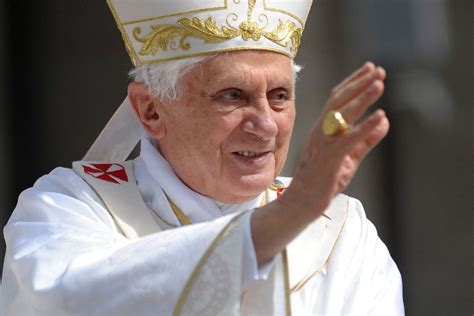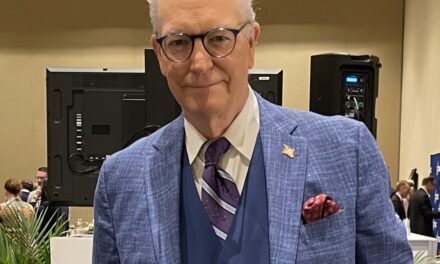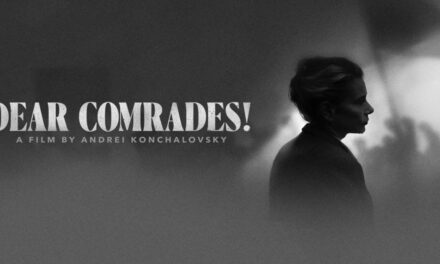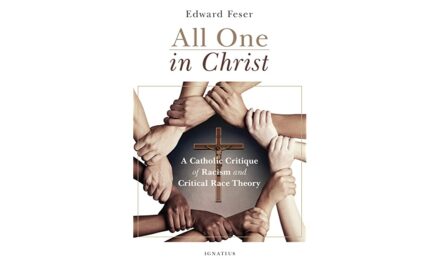With the publication of Last Testament: In His Own Words (Bloomsbury Continuum), we have what is heralded as the last book that Joseph Ratzinger/Pope Benedict XVI will publish during his life.
A book-length interview conducted by journalist and writer Peter Seewald, who has published three previous book-length interviews with Benedict, as well as a biography, Last Testament is a beautiful portrait of a brilliant and incisive thinker and a holy and contemplative disciple of Christ.
Although some of the material will be familiar to those who know Benedict’s life and work, the man we encounter here seems more reflective and more revealing. The meekness, humility, and fear of the Lord of this most accomplished teacher, writer, theologian, and pope is exhibited throughout.
Last Testament covers Benedict’s early life, his years of service to the Church, his days as pope, and his days since his resignation. He did not want or seek the papacy. But he recognizes that it was God’s will that he serve. He did not leave because he was pushed out. He left because he recognized that he did not have the strength to go on.
It was not necessary to have a long pontificate, he tells us, because his eight-year-long pontificate was focused on faith and reason.
Some may find his thoughts on his life as a student and professor or the part he played in the Second Vatican Council or his experience as pope or his thoughts about the Church since his resignation most interesting, but for me the two sections that are most illuminating are the chapters “Quiet Days in Mater Ecclesiae” and “Childhood and Parental Home.”
In “Quiet Days,” Benedict shows no disappointment in his answer to a question about whether he has been able to live only the life of contemplation and prayer for which he longed. Instead, he offers a realistic and humble assessment of the state of his life.
He cannot pray as fully as he would like as a contemplative because he does not have the “psychological strength,” a recognition that suggests his admiration for the Church’s ascetics and contemplatives. He says, “I am simply not inwardly strong enough to dedicate myself to divine and spiritual things.”
In addition, he also must meet with visitors and speak with those “who carry responsibility for the Church today, or who play a role in my life, and who help me remain anchored in human things.”
With the exception of homilies, he has given up writing. He doesn’t keep a diary because that’s too personal. “I have done my work,” he says.
Yet he writes a Sunday sermon each week for the four or five persons who attend the liturgies he celebrates. “Why not?,” he responds to a question about this. “Whether there are three or twenty thousand. The Word of God must always be present to people.”
He does not write to add to his life’s work. His writing is part of his “continuing in my service to prayer.” In fact, his approach to the writing of these homilies offers evidence of his deeper prayer life:
“Well, I can now pray the breviary deeply and slowly and thereby deepen my friendship with the Psalms, with the Fathers. And every Sunday, as I mentioned, I compose a little homily. I let my thoughts be oriented towards that over the whole course of the week, so they mature slowly, so I can sound out a text from many different angles. What is it saying to me? What is it saying to the people here in the monastery? That is what is actually news, if I may put it so: tuning in to the prayer of the Psalms with even more silence, making myself more familiar with it. And in this way the texts of the liturgy, above all the Sunday readings, accompany me throughout the week.”
In the chapter “Childhood and Parental Home,” he gives us a clear picture of a good and holy Catholic marriage. What he says about his parents speaks to his love, admiration, respect, and gratitude. He reveals the same about his brother Georg and sister Maria.
His parents were of different temperaments and how they approached life was different. His mother, Maria, “was genial, loving, warm-hearted and not so rational. She liked to live on a whim, in the moment.” His father, Joseph, however, was strict and demanding. “He was a law-abiding and honest man, and he ensured that one continued on this path.”
Although they argued, they had “a deep inner unity, so the quarrel would upset us, but we always knew the essence of their marriage was intact.”
The piety of Benedict’s father, like the father of his successor Pope Saint John Paul II, was deeply influential on his life and that of his brother and sister. Benedict says his father was not unreasonable in his expectations.
“Father gave much attention to making sure we were well schooled and orderly. But he did not want us to be anything ‘great’, and certainly didn’t invest anything in that. He was pleased that we [speaking about himself and Georg] wanted to be priests. He was simply a man who really lived the piety of the Church.”
What Benedict says about his successor, Pope Francis, is gracious and supportive, which is as it should be. This, it seems, is more the result of Benedict’s humility than decorum. It is also the result of his recognition that, as he says, he has done his work. The Church, he seems to say, remains as it always has — under the care of the Father, the Son, and the Holy Spirit.
His time now is short. Death awaits him. In answer to a question about whether one can prepare for death, Benedict responds:
“I think one must, even. Not in the sense of performing particular actions, but living inwardly, so that there is a final self-examination before God. So that one goes out of this world and will be there before God, and before the saints, and before friends and those who weren’t friends. So that one, let’s say, accepts the finitude of this life and approaches it inwardly, to come before God’s countenance.”
He does that, he says, through meditation: “I time and time again think on the fact that it is going to end.”
His public life is over, but his life of prayer and teaching of the faith goes on. He remains and, with the help of Peter Seewald, will be remembered as a great blessing to the Church.















This sounds fascinating. I enjoyed the previous book-length interviews with Joseph Ratzinger, especially The Ratzinger Report and Salt of the Earth.
I always thought that Joseph Ratzinger the theologian had some terrific ideas, especially with regard to Orthodox-Catholic relations and liturgical reform. However, I was surprised that he didn’t take more steps to implement these ideas when he had the opportunity to do so as pope. Do you have any insight into why didn’t he do more?
Thank you for your question, Anthony. I speak from limited information, so I can give only a supposition.
Benedict provides somewhat of an answer to this question in Last Testament (page 203) in answer to a question about ecumenism. Seewald notes that some ecumenical initiatives emerged but suggests that the ecumenical process must have disappointed Benedict. Benedict responds that he is difficult to disappoint because he understands the reality of the situation. Here, I think, is the key point in his statement:
“… whoever knows the reality cannot expect that Church unity is coming, in the genuine sense of the word. One has to strive for it, that we ever more listen and learn from each other, so the essential thing is not lost, faith in Jesus Christ the Son of God, and from here the fundamental directions for practical activities emerges.”
Seewald notes (page 204) that a meeting between the pope and the Moscow Patriarch seemed imminent during Benedict’s papacy. Benedict responds, “Yes. Indeed. There is a certain affection there.” He also speaks well of Patriarch Bartholomew I of Constantinople, who, Benedict says, has visited him “in my little monastery.”
Earlier, Benedict spoke of ecumenism during his papacy in Light of the World (pages 90-91). In answering a question then about a possible meeting between the pope and the Patriarch of Moscow he says: “That depends on how much life the good Lord grants me.” He adds, “It was already a very lovely gesture on the Patriarch’s part to ask Hilarion to arrange a concert in Rome to celebrate the fifth anniversary of my pontificate; Hilarion is a composer himself, and he performed one of the compositions. So there are many forms of contact between us.”
So the answer to your question seems to be this: Much work was done, some of which we are not aware of; the process is a slow one; Benedict’s work consisted of forging a closer relationship with the Orthodox (and others not in union with Rome); his emphasis on faith and reason during his pontificate was seen positively by the Orthodox; and time prevented more work.
It seems fair to say that Benedict’s work prepared the way for the meeting between Patriarch Kirill and Pope Francis in Cuba. When Benedict resigned, Metropolitan Hilarion made this statement, as reported by Catholic News Agency:
“Relations between the Russian Orthodox Church and the Roman Catholic Church have acquired positive dynamic after his ascension to the See of Rome.”
Hilarion also said he had positive meetings with Benedict and praises Benedict’s emphasis on traditionalism:
“Metropolitan Hilarion said his meetings with Pope Benedict are memorable, and noted the pontiff’s thoughtfulness, sensitivity, and ‘his desire to solve together the problems arising in our relations.’
“He praised the Pope’s staunch opposition to the ‘dictatorship of relativism’ and said that his ‘traditionalism and conservatism…are of credit for millions of Christians, both Catholic and non-Catholic, who seek to preserve traditional Christian spiritual and moral values.’”
http://www.catholicnewsagency.com/news/orthodox-bishop-lauds-pope-for-building-good-relations/
At the start of his papacy, Benedict said he would work to mend relations. He seems to have accomplished that.
http://www.foxnews.com/story/2005/05/29/pope-pledges-to-mend-orthodox-relations.html
https://oca.org/news/archived/the-visit-of-pope-benedict-to-the-ecumenical-patriarchate
Yours is a question well worth exploring in depth, and I hope someone will.
Thank you for the detailed response, Father Deacon Kevin. I wasn’t aware of many of the events that you mentioned. It does, indeed, sound like he laid the groundwork for the current positive relations between Rome and Moscow.